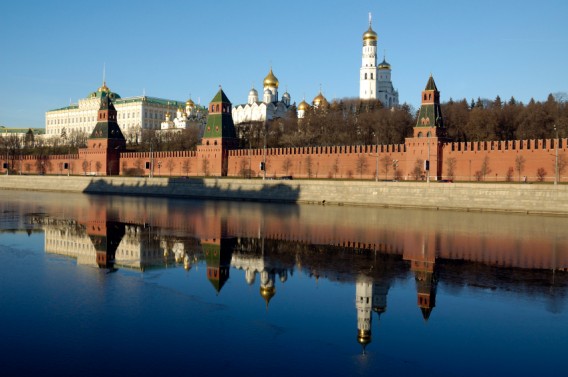
The Kremlin – where Stalin trembled in 1940.
Seventy years ago this month, in his office in the Kremlin in Moscow, Joseph Stalin listened to a radio report of the German occupation of Paris. As he learnt of the Wehrmacht’s triumph, he turned almost in despair to his comrades and complained about the performance of the French army, saying: ‘Couldn’t they have have put up any resistance at all?’
The German success in France was a disaster for Stalin. The core foundation of his foreign policy – the belief that the Germans would become embroiled in a war of attrition in the fields of Flanders, just as they had in the First World War – was now shattered. Stalin had thought, back in August 1939, that he was being extremely clever in negotiating the Nazi/Soviet pact which kept the Soviets out of the fighting, and yet now he had to rethink his policy completely – and from a position of weakness.
In the wake of the German conquest of France, Stalin practiced his own version of obsequious appeasement. Deliveries of raw materials to the Nazis increased, and Stalin went out of his way over the following months to try and assure Hitler that he was a loyal chum of the Fascists. It was the behaviour of a terrified man – and reached a low point on 13 April 1941 when Stalin hugged Colonel Hans Krebs of the German embassy at Moscow railway station. ‘We will be your friends!’ said Stalin emotionally. ‘Whatever will come!’ Krebs was clearly not impressed by this display of weakness from the Soviet leader. ‘It can’t be ruled out,’ Krebs subsequently wrote to a friend, his letter dripping with contempt, ‘that Stalin was under the influence of alcohol.’
But who are we to blame Stalin for this pathetic behaviour? Yes, he seems to have been almost cracking under the strain, and yes, he was about to ignore military intelligence which pointed to a forthcoming German invasion. But the fact is that Stalin had done what almost everyone would have said was the sensible thing in August 1939 by making a deal with Hitler. The expectation that the Germans would be trapped in a draining war against the French was the view most sensible people held at the time. It wasn’t Stalin’s fault that events had not worked out as predicted.
One of the problems with history is that we see everything as a pattern after the event. We try to place ourselves in the position of people in the moment, but it is almost impossible to forget that we also know how it all turned out. I remember a distinguished Napoleonic historian sighing as he talked to me about a recent book on Waterloo. ‘The trouble with almost all of these writers,’ he said, ‘is that they can’t seem to understand that Napoleon thought he would win the battle. But they, knowing the result, try and read all the reasons for defeat back into the history.’
I’ll give you an example from today of what I mean. In a few minutes the English football team will take on Slovenia. Obviously I don’t know the result yet – and nor does anyone else. But if I was writing this in a couple of hours time the temptation to judge the whole of England’s world cup efforts in the light of the result of this one match would be overwhelming. I’ll bet we’ll see this in the newspapers tomorrow. If England win the story will be ‘Fabio Capello – manager of genius who prepared the team brilliantly’. If England are eliminated from the world cup the story will be ‘Fabio Capello – worst manger for years, because all of the preparations were rubbish!’ And in each case the recent history of the English team will be selectively judged to fit the result of the game.
We need to be careful in history not to make the same mistake. Hard for people to accept now because of the knowledge of hindsight, but the fight Hitler should have lost – according to the smart money at the time – was the one against France. And the fight many thought he should have won – which is why Stalin was so terrified – was the one against the Soviet Union.
 Twitter
Twitter






I read this and thought of the commentator who said after the end land match: fabio’s great but of course we would have said he was terrible if we hadn’t won. The human condition – wise after the event, seeing history back to front.